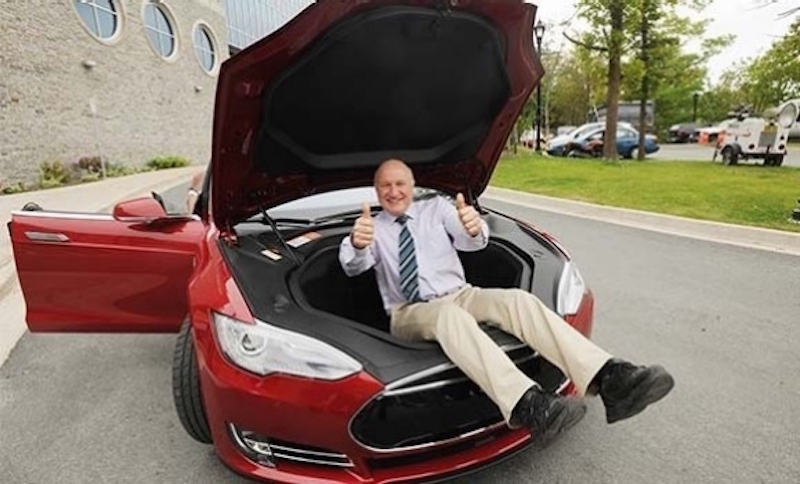So far "world of hurt" has not been caused by a lack of batteries. Nissan built battery factories and had to basically give them away. FCA got in trouble because they failed to design the EVs mandated by EU 95g, But PSA, who acquired FCA, seems to have no problems finding enough extra cells to meet the mandate. VAG almost tripled EV deliveries last year and more than doubled y/y in Q1 this year. How is battery supply crimping their growth?
@RobStark answered most of your points better than I could have. But the Ioniq had trouble upon introduction due to battery shortages.
We are getting close to the tipping point on EVs, but we aren't there yet. The US is up to 2.2% of car sales being EV, but while that's a massive improvement, it's still a tiny share of car sales. And with the average age of a car on the road being 12 years old in the US, that means EVs are still a massively small percentage of all cars on the road and it's going to take decades to retire all the ICE.
When the tipping point happens, consumer demand will flip from predominantly ICE with some demand for EVs to EVs with some demand for ICE. EVs are vastly superior to ICE in many ways, but most consumers are not aware of it yet. I talk to my ICE owning neighbors and most really haven't thought about the differences and don't want to think about them.
But we could see a rush for EVs like the switch from vinyl to CDs. One year it was almost all vinyl with some CDs and the next year the vinyl section of record stores became a back corner with most of the stock being CDs. I was building my music collection when that happened and it went quick. The record companies were able to make the switch quickly because there was no resource bottleneck and you're dealing with something small and easy to produce quickly.
Cars are not as fast to produce and batteries are the bottleneck. The car companies hope that demand will keep pace with their ability to expand battery production, but these things usually have a 100th monkey effect that switches demand virtually overnight.
Some countries like Norway and the Netherlands have put an emphasis on EV sales, but they make of a tiny sliver of the world's car market, which is why they can do that. As pointed out above, a lot of the PHEVs and EVs being sold in Europe today are compliance cars to meet the coming requirements for EVs only in city centers around Europe.
China is a special case, but outside of China Tesla still has most of the market for EVs with any real range. VW is probably in the best position compared to other legacy automakers because the dieselgate lawsuits forced them to electrify faster than other car makers. They are a year to a few years ahead of the competition.
You don't really know what they control. We do know they control battery production and design, "battery" does not equal "cells".
We do know that people who have tested Tesla cells say they behave differently than other Panasonic off the shelf cells. With the work of Jeff Dahn and others on small amounts of proprietary additives causing changes in cell behavior it's quite likely that Tesla does specify "secret sauce" in their cells. (I would assume the CATL LiFePO4 cells are fully developed by CATL but they also aren't the cutting edge of energy density.)
With li-ion battery chemistries tiny changes in composition can make a big difference in characteristics. The industry is beginning to get some idea to predict what changes will do what, but there is still a lot of experimentation in Li-ion cell chemistry research.





